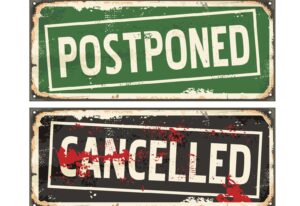 Ah, California. The land of tech innovation, wine country, and endless coastline. Also the land of shysters, hucksters, and snake oil salesmen, far too many of whom have migrated to the booming cannabis industry to ply their trade. With the lead up to full implementation of the Medicinal and Adult Use Cannabis Regulation and Safety Act (“MAUCRSA” a/k/a SB 94), mergers and acquisitions of existing cannabis entities and locally approved cannabis operators are happening at a rapid pace. And with this run-up in California cannabis M&A, we are seeing all kinds of bad behavior by sellers of cannabis business looking to generate a quick buck by selling little more than vapor.
Ah, California. The land of tech innovation, wine country, and endless coastline. Also the land of shysters, hucksters, and snake oil salesmen, far too many of whom have migrated to the booming cannabis industry to ply their trade. With the lead up to full implementation of the Medicinal and Adult Use Cannabis Regulation and Safety Act (“MAUCRSA” a/k/a SB 94), mergers and acquisitions of existing cannabis entities and locally approved cannabis operators are happening at a rapid pace. And with this run-up in California cannabis M&A, we are seeing all kinds of bad behavior by sellers of cannabis business looking to generate a quick buck by selling little more than vapor.
Here are my top five red flags for California cannabis business purchases so as to avoid getting lost in the smoke:
- Refusal to engage in due diligence. With any other business purchase, a failure by the seller to answer each and every due diligence question is a massive warning sign. Especially in California, where strange and illegal behavior has run rampant under Prop. 215, anyone looking to buy an existing operator “collective” needs to conduct due diligence to make sure they do not purchase an entity that has been suspended by the Franchise Tax Board, that’s facing massive tax penalties or an IRS audit, that doesn’t have rights to the real property on which it seeks to operate, or that doesn’t even have the authority to sell you the entity because of corporate governance issues. See also The Great Eight California Marijuana Industry Pitfalls. All too often, existing California cannabis operators claim they have no business history in writing to review and you should just “trust them.” Don’t.
- Paranoia about talking to regulators. The cannabis business lawyers in my firm represented a buyer in a California cannabis business purchase where the sellers became visibly angry and scared upon learning that our buyer client had reached out to local government regulators to ensure the sellers had actually secured local approval for medical cannabis commercial activity and to confirm the local government was on track to permit adult use cannabis activity sometime in 2018. Potential buyers bear the bulk of the risk in the purchase and sale of a business and they are entitled to verify that local entitlements are on track and if a seller trying to prevent that is a red flag.
- Bogus assets with a great pitch. Way too often, California cannabis business sellers try to pitch buyers with business assets that either do not exist or are legally impossible. Countless times, I’ve had existing operators tell my buyer clients they have a state license to operate under MAUCRSA. This cannot be true because no state license has yet to issue for cannabis activity in California; the regulatory agencies in charge of implementing MAUCRSA haven’t even issued the initial rules yet. I’ve had other existing operators claim to have access to countless contracts with future retailers (which are really just Prop. 215 collectives) for future sales or to have contracts to sell massive quantities of cannabis products to researchers or major hospitals These claims and contracts are all likely unenforceable or nonexistent, but they can sound great to a seller who doesn’t know California’s cannabis laws or marketplace. I’ve also had sellers claim they can sell their cannabis businesses without local approval issues which is also untrue almost all of the time. The name of the game in California cannabis mergers and acquisitions should be buyer beware and then some.
- Overvaluation. The majority of California cannabis operators seem to believe their California cannabis businesses are worth millions of dollars even though they’ve never faced regulated competition, their non-profit structures don’t grant equity to their members, or they are in a city or county that only allows for medical cannabis (which reduces the ability to maximize sales and therefore profit). We’ve blogged before about how difficult it is to truly value a cannabis business for a variety of reasons, but California is on another level with the wild numbers being pumped out without any verifiable data to support them.
- “Exclusive Opportunities” on the hustle. Many existing California operators try to sell potential buyers by claiming theirs is “the only opportunity” to undertake certain commercial cannabis activity in a given local jurisdiction. Rarely is this claim true. Sometimes this claim is based on the seller having a lease or sublease with proper zoning. That lease interest is indeed valuable, but it is not a once in a lifetime shot. And with this “exclusive opportunity” comes an absurdly short closing date where the seller needs the money now, now, now. If you’re a seasoned businessperson, you know that good deals take time to vet and close.























